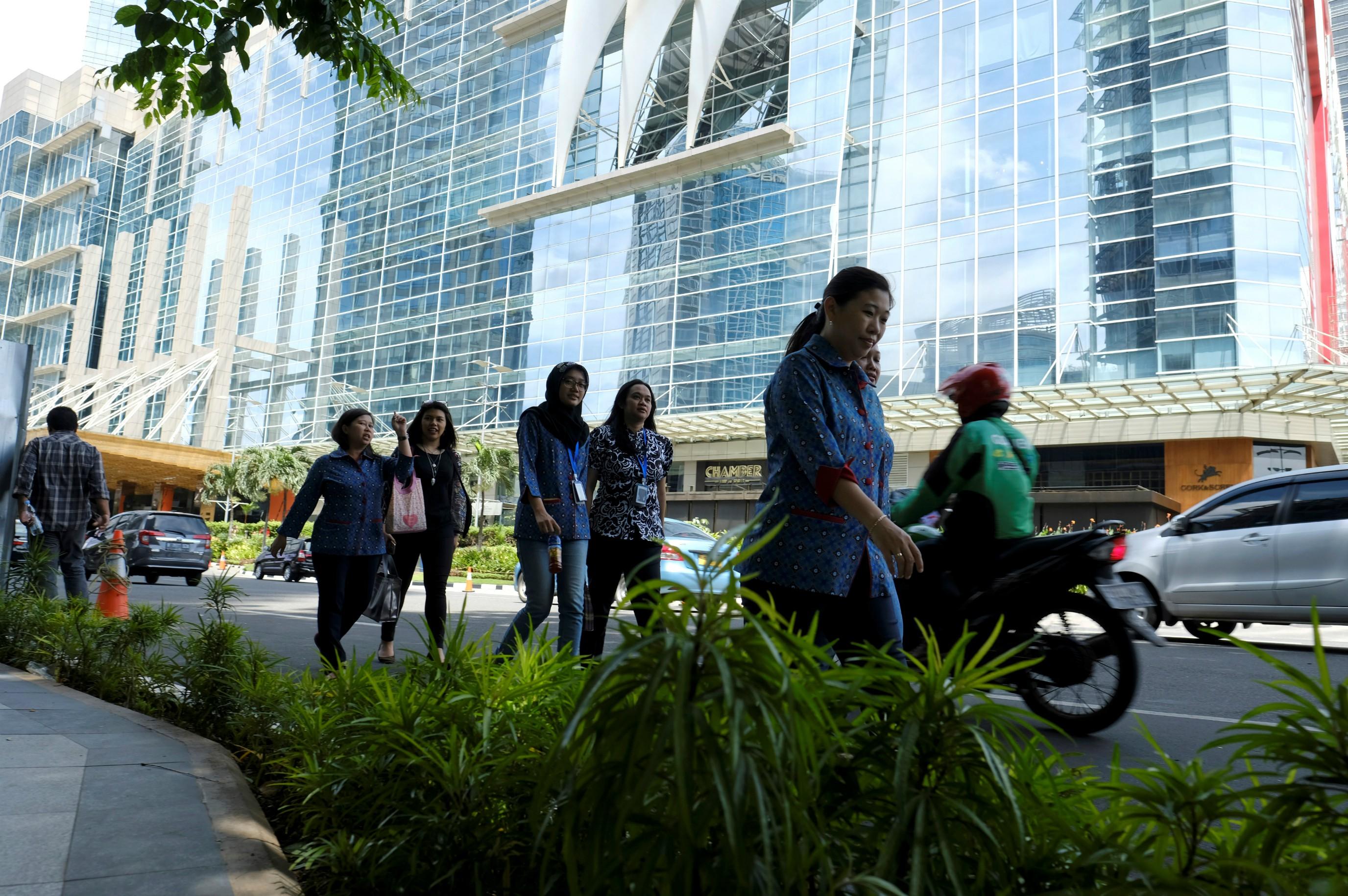Licensing for Islamic P2P in Indonesia still unclear as deadline for registration looms
JAKARTA – There is still uncertainty in the licensing process for Islamic peer-to-peer (P2P) operators in Indonesia as the deadline for the first batch of applications looms on October 5.
Indonesia’s Financial Services Authority (OJK) will only issue licenses to Islamic P2P operators following recommendation by the national-level Shariah committee, the Dewan Syariah Nasional-Majelis Ulama Indonesia (DSN-MUI), Hendrikus Passagi, the OJK director of Fintech Supervision and Licensing Arrangement told Salaam Gateway.
However, Ronald Wijaya, chairperson of industry body the Indonesia Shariah Fintech Association (AFSI), told Salaam Gateway discussions on the exact process are still ongoing.
“There is ongoing discussion among AFSI, OJK and DSN-MUI whether Shariah-compliant companies would need a certificate from MUI or [just a recommendation] to validate their license from OJK,” said Wijaya.
Only two of the currently 70 P2P platforms registered with OJK are fully Shariah-compliant, neither of which are licensed, said Passagi.
“Currently there are two registered P2P Shariah-compliant financing platforms, namely Ammana Fintek Syariah and Dana Syariah Indonesia. Many others are in the registration process pipeline, including Ethis Crowd, Kapital Boost, and Danakoo Syariah,” said Passagi.
Only one registered P2P operator, conventional lender Danamas, has been granted a license, Passagi added.
Licensing for P2P platforms became mandatory from July 2018.
Islamic P2P operations are subject to the same OJK regulation No. 77/2016 as conventional P2P but they must also align their underlying contracts for financing with the six allowed by DSN-MUI.
The six DSN-MUI-approved contracts, as announced in fatwa No. 117/ DSN-MUI/II/2018, are based on the fee-based agency structure wakalah bil-ujrah. They cover factoring financing, purchase order financing, online seller financing, payment gateway financing, employee financing and community-based financing.
According to Passagi, companies applying for P2P licenses based on OJK regulation No. 77/2016 could take up to 12 months to meet the regulator’s requirements.
The regulation requires companies to hold 2.5 billion Indonesian rupiah ($166,333) in subscribed capital at the time of application for a licence. The maximum limit for loans or financing per borrower cannot exceed 2 billion rupiah.
SECTOR DEVELOPMENT
The government is keen to boost the fintech lending sector as it strengthens its regulatory framework.
OJK in August released new rules for fintech beyond its previous guidelines that mostly covered P2P lending. The new regulation includes transaction settlement that relates to investment, equity crowdfunding, Islamic digital financing, e-waqf and e-zakat.
“OJK targets in the P2P lending sector are to create 5 million borrowers and 30 trillion rupiah in loans and financing through fintech by next year,” said Passagi.
9.2 trillion rupiah has been extended to 1.4 million borrowers through P2P lending as of July 2018, according to data from OJK.
“P2P Shariah-compliant financing, even though a very small part of total loans, is part of this ecosystem that we want to establish,” added the official.
Vice chairperson of the Indonesian Fintech Association, Adrian Gunadi, told Salaam Gateway last month that fintech lending accounts for 1 percent of total loans in Indonesia. The association is looking to grow this to between 5 percent and 7 percent in four years, which would value total fintech lending in Southeast Asia’s largest economy at between $5 billion and $10 billion, mainly in the SME space.
Gunadi said 20 to 30 of the association’s 130 members offer Islamic products and services.
There are currently 12 fully-Islamic P2P platforms that are members of the Indonesia Shariah Fintech Association (AFSI), according to Wijaya. They are Ammana, Dana Syariah, Ethis Crowd, Kapital Boost, Syarfi, SyarQ, Danakoo Syariah, Kandang.in, Goolive, Kerjasama.id, IjabQabul.id and InvesProperti.id.
($1 = 15,053 Indonesian rupiah)
(Reporting by Yosi Winosa; Editing by Emmy Abdul Alim emmy.alim@refinitiv.com)
Our Standards: The Thomson Reuters Trust Principles
© SalaamGateway.com 2018 All Rights Reserved
